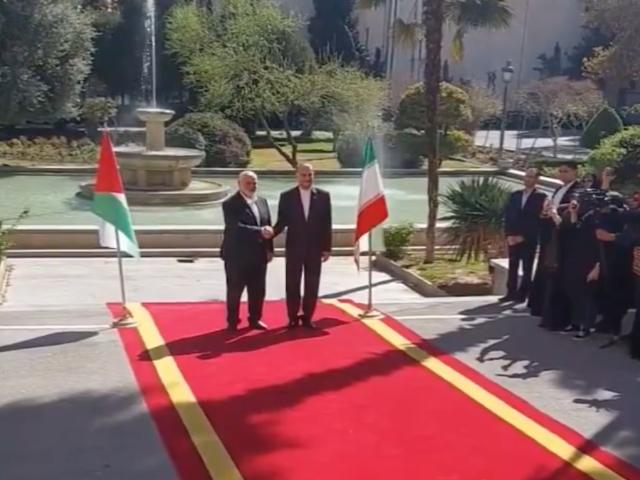In a recent statement during his visit to Iran, Hamas leader Ismail Haniyeh highlighted Israel's "unprecedented political isolation," referencing the latest UN Security Council's call for a ceasefire in the ongoing Gaza conflict. Speaking in Tehran, following a meeting with Iranian Foreign Minister Hossein Amir-Abdollahian, Haniyeh critiqued the timing and completeness of the UN resolution but acknowledged its significance in portraying the isolation of the Israeli state on the international stage. He further criticized the diminishing political support and protection for Israel, even within the Security Council, pointing out the United States' waning influence over global consensus on the issue.
Haniyeh's remarks come amid more than five months of conflict, during which, he claims, Israel has failed to achieve its military and strategic goals. His visit to Iran—his second since the initiation of hostilities on October 7, which led to significant casualties primarily among civilians—underscored the deepening ties between Hamas and its Iranian backers, who have lauded the offensive as a success while denying direct involvement. However, Iran's support for groups in Iraq, Lebanon, Syria, and Yemen has escalated tensions, with these groups launching attacks on Israeli and Western interests.
🇵🇸🇦🇪BREAKING: Ismail Haniyeh arrives in Tehran, Iran#Israel #Palestine #Gaza #ceasefire #hostages #Rafah #Hezbollah #Lebanon #Jordan #Egypt pic.twitter.com/8Wz7zkUJ8D
— The War Report (@thewarreporter) March 26, 2024
During Haniyeh's stay, he, along with the Palestinian delegation, met with Iran's supreme leader, Ayatollah Ali Khamenei. Khamenei's office released a statement praising the Palestinian resistance and condemning the support of Western nations for what he termed the "crimes and brutalities" of Israel. Khamenei affirmed Iran's unwavering support for the Palestinian cause and the people of Gaza, amidst these challenging times.
The visit coincided with a recent UN Security Council resolution advocating for an immediate ceasefire in recognition of the Muslim holy month of Ramadan, aspiring for a durable peace. The resolution also demands the release of hostages taken by Hamas and other groups during the October offensive, with Israel estimating that around 130 of the approximately 250 captives remain detained, including 33 presumed deceased. Haniyeh ignored the hostages in his remarks and Hamas' obligations under the UNSC vote, and portrayed the vote as a binding resolution on Israel alone to halt the fighting.
Hamas terror leadership, which resides in Qatar, travels to Iran to meet with the Godfather of terrorism—Ayatollah Ali Khamenei. This picture alone should be enough for the US to remove Qatar’s “major non-NATO ally” status & instead designate it as a state sponsor of terrorism pic.twitter.com/kQ4Tm8qktB
— Kasra Aarabi (کسری اعرابی) (@KasraAarabi) March 26, 2024
The international response, while calling for a cessation of hostilities, has been critiqued by Iranian officials as inadequate. Nasser Kanani, a spokesman for the Iranian foreign ministry, welcomed the UN's decision but stressed the necessity for effective implementation and a comprehensive halt to aggression, signaling a complex web of geopolitical dynamics and the urgent need for a sustained resolution to the conflict.


